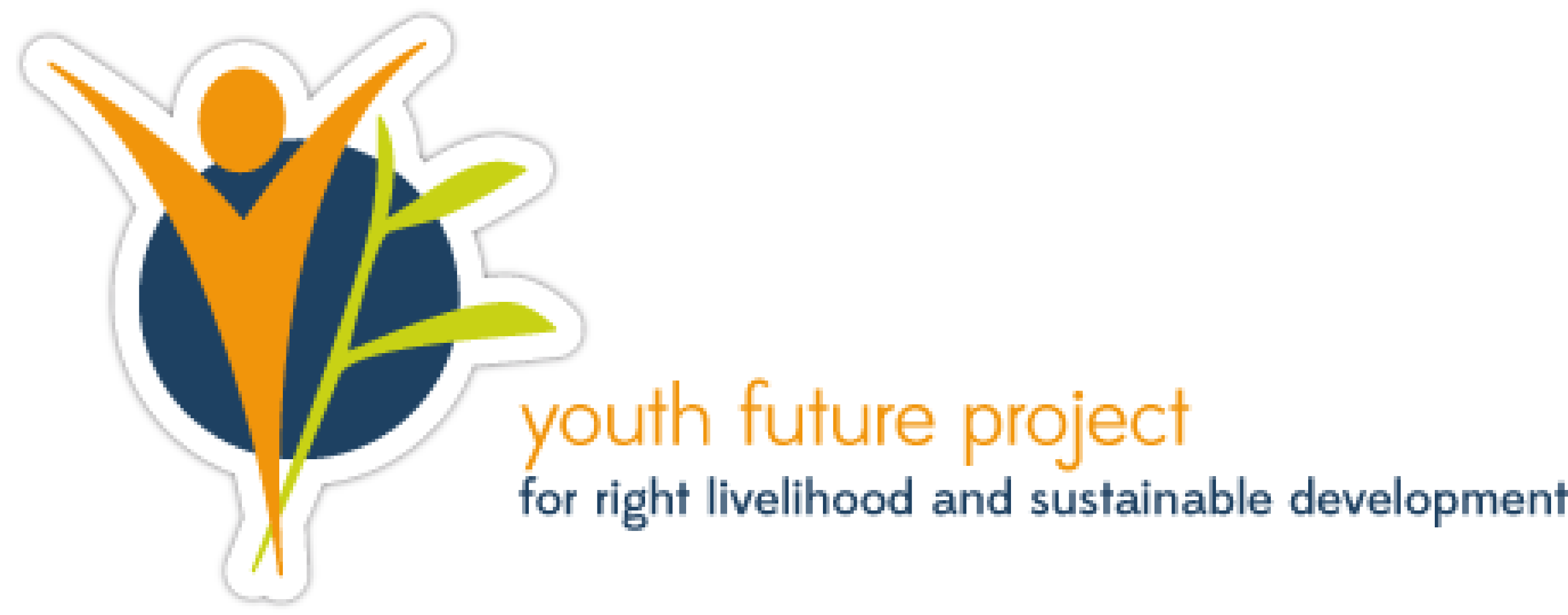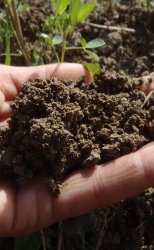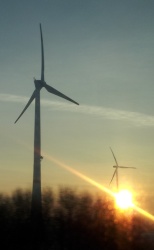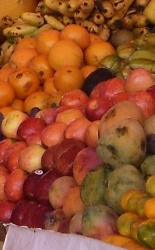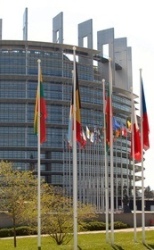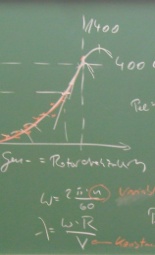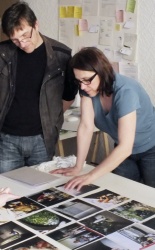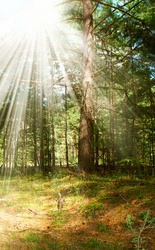Bodenlose Zukunft?! Wo bleibt der Boden unter unseren Füßen?
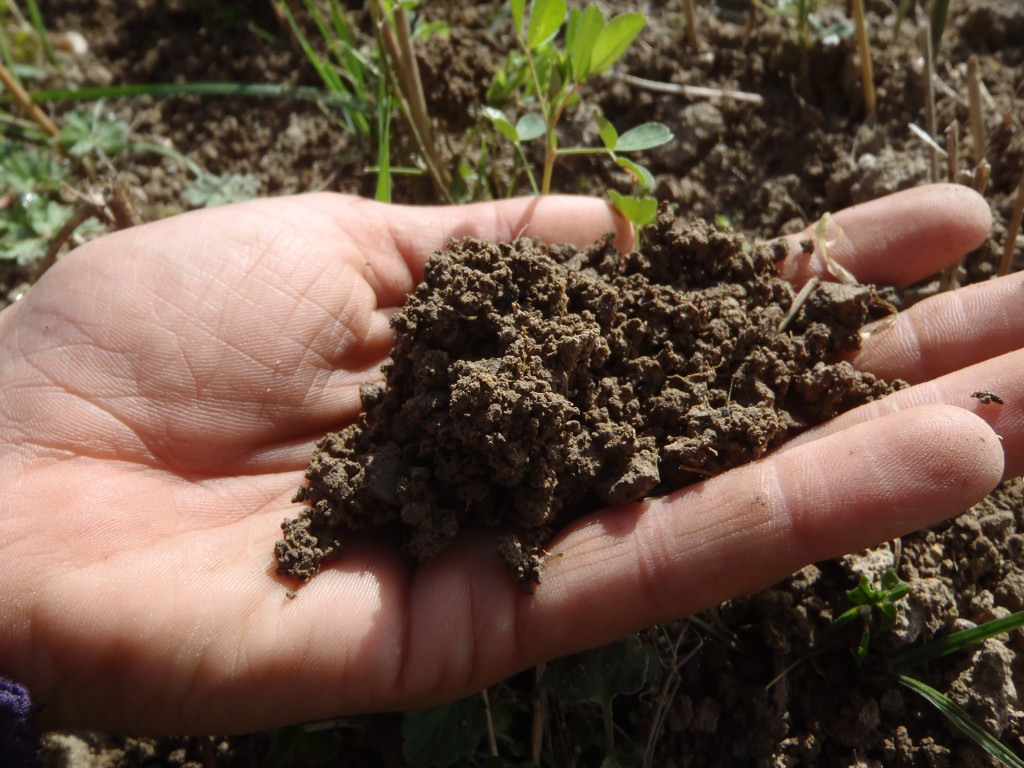 Die heutige Gesellschaft entfernt sich immer mehr von dem Boden als Grundlage für unser Leben. Selbst die Landwirtschaft, deren Grundlage der fruchtbare Boden ist, nutzt den Boden aus oder verzichtet sogar ganz darauf (Nährlösung). Wie kommt es dazu? Was bedeutet der Boden den unterschiedlichen Menschen?
Die heutige Gesellschaft entfernt sich immer mehr von dem Boden als Grundlage für unser Leben. Selbst die Landwirtschaft, deren Grundlage der fruchtbare Boden ist, nutzt den Boden aus oder verzichtet sogar ganz darauf (Nährlösung). Wie kommt es dazu? Was bedeutet der Boden den unterschiedlichen Menschen?
Die Wirtschaft, bzw. Banken und Investoren, sogar ganze Staaten sehen im Boden eine Möglichkeit der Kapitalsicherung, da es ein begrenzter „Rohstoff“ ist. Er ist für die Nahrungsmittelproduktion unersetzlich und gewinnt inzwischen auch in der Energieproduktion an Bedeutung. Für die Ökologie hat der Boden aber noch sehr viel mehr Bedeutung. Ihm kommen unzählige Funktionen zu, z.B. als Wachstumsgrundlage für Pflanzen, Reinigung von Wasser, Bindung von CO2 (Klimaschutz), der Reproduktion von organischer Substanz zu wertvollem Kompost und Humus und vielem mehr. Der Boden ist unverzichtbar für ein gesundes Gleichgewicht der Ökosysteme. Der Gesellschaft ist dieses Wissen über den Boden weitestgehend verloren gegangen.
Die Verantwortung, bzw. Handlungsmöglichkeiten liegen bei der Landwirtschaft, die allerdings mehr und mehr der Industrie unterliegt. Die Pflanzen wachsen ja mit Düngemitteln und Pestiziden. Scheinbar, denn ohne den fruchtbaren Boden wächst irgendwann gar nichts mehr. Im Moment wird der Boden degeneriert. Allein durch Wasser- und Winderosionen sind uns schon riesige Mengen des fruchtbaren Bodens verloren gegangen.
Warum ist das nicht nur ein Problem der Landwirtschaft, sondern auch der Gesellschaft? Was geht uns da im Moment verloren? Wo ist der Bezug zur Natur? Was ist mit unseren Erholungsräumen und unserer Heimat? Was passiert mit der Vielfalt und der Schönheit, dem Ursprung von Kreativität und Inspiration?
Wie kann eine Gesellschaft wieder ein Verständnis und ein Verantwortungsgefühl für den Boden und weitergehend für unsere Natur und Landschaft zurück erlangen. Wie stehe ich persönlich dazu und wo möchte ich hin? Welche Wege kann ich als Mensch und welche Wege die ganze Gesellschaft gehen um der Entkopplung von der Natur und dem Boden, bzw. der Landwirtschaft entgegen zu wirken?
Referenten
Prof. Dr. Michael Succow Botanikprofessor und Naturschützer, Deutschland Right Livelihood Award 1997
Felix Prinz zu Löwenstein
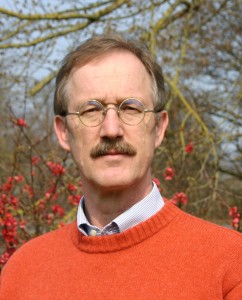 Felix Prinz zu Löwenstein, Jahrgang 1954, bewirtschaftet seit 21 Jahren einen Biobetrieb in der Nähe von Frankfurt/Main nach Naturland-Richtlinien und ist seit vielen Jahren in Gremien des Ökologischen Landbaus aktiv. Er ist Mitglied des Naturland-Präsidiums und im Vorstand des Forschungsinstitutes für Biologischen Landbau (Fibl) in Deutschland. Seit seiner Gründung 2002 sitzt er dem Vorstand des Bund Ökologische Lebensmittelwirtschaft, des Dachverbandes der deutschen Biobranche auf Bundesebene vor. Er ist verheiratet und stolzer Vater von 6 Töchtern und Großvater eines Enkelkindes und im Begriff, an eine seiner Töchter den land- und forstwirtschaftlichen Betrieb zu übergeben.
Felix Prinz zu Löwenstein, Jahrgang 1954, bewirtschaftet seit 21 Jahren einen Biobetrieb in der Nähe von Frankfurt/Main nach Naturland-Richtlinien und ist seit vielen Jahren in Gremien des Ökologischen Landbaus aktiv. Er ist Mitglied des Naturland-Präsidiums und im Vorstand des Forschungsinstitutes für Biologischen Landbau (Fibl) in Deutschland. Seit seiner Gründung 2002 sitzt er dem Vorstand des Bund Ökologische Lebensmittelwirtschaft, des Dachverbandes der deutschen Biobranche auf Bundesebene vor. Er ist verheiratet und stolzer Vater von 6 Töchtern und Großvater eines Enkelkindes und im Begriff, an eine seiner Töchter den land- und forstwirtschaftlichen Betrieb zu übergeben.
Nach Studium und Dissertation an der TU München in Weihenstephan arbeitete und lebte er mit seiner Familie 3 Jahre in Haiti als Entwicklungshelfer im Auftrag des katholischen Hilfswerkes MISEREOR, für das er danach noch mehrfach Kurzeit-Einsätze in Afrika und Haiti leistete.
Er ist Autor des Buches „FOOD CRASH – Wir werden uns ökologisch ernähren oder gar nicht mehr“, durch das er zu einem viel gefragten Teilnehmer in der Diskussion um die Globale Ernährungssicherung wurde.
Workshopleiterin
Inge v. Bonin
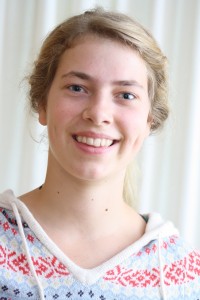
Ich bin auf einem Demeterhof in Mitteldeutschland geboren und aufgewachsen. Nach dem Fachabitur habe ich in England auf einem Camphill mit behinderten Menschen im Haus und Garten gearbeitet. Als ich wieder zurück kam nach Deutschland habe ich eine landwirtschaftliche Ausbildung auf verschiedenen Biohöfen gemacht. Im Moment unterstütze ich den elterlichen Betrieb bis im Sommer das Landwirtschaftsstudium anfängt.
Durch meine Ausbildung habe ich immer wieder mit dem Boden als Grundlage der Landwirtschaft zu tun gehabt und es hat mein Interesse geweckt die Entwicklung des Bodens in Deutschland aber auch weltweit zu verfolgen. Die Konferenz ist wichtig für mich, weil es mein Wunsch ist jungen Menschen Wissen rund um den Boden zu vermitteln, sie dafür zu begeistern und eine Zukunft aufzuzeigen, wie die Gesellschaft die Landwirtschaft verändern kann.
Weitere Workshops:
Groundless Future – Where is our soil, our common ground?
 More and more soil becomes an important and pressing issue. On the one hand there are people who realize the importance of fertile soil for every being on earth. On the other hand our soil is in sore distress: far too few people care about the fragility of soil. Everybody is somehow connected to it, because everybody’s food production depends on it. Still most of the people in Europe are not aware of its importance in the different ecosystems. The soil purifies the water, it contributes to the carbon sequestration, and is the base for food production. How are people connected with one of our most essential goods, our soil?
More and more soil becomes an important and pressing issue. On the one hand there are people who realize the importance of fertile soil for every being on earth. On the other hand our soil is in sore distress: far too few people care about the fragility of soil. Everybody is somehow connected to it, because everybody’s food production depends on it. Still most of the people in Europe are not aware of its importance in the different ecosystems. The soil purifies the water, it contributes to the carbon sequestration, and is the base for food production. How are people connected with one of our most essential goods, our soil?
In the last time topics like degeneration of the soil, high rent prices, “landgrabbing”, and industrial agriculture arouse more people than just farmers. There are a lot of bad developments concerning the soil. In the majority of cases ecology is competing against a capitalistic economy. How can healthy soil exist in a society where economy dominates everything? And how can we learn to see that soil is vital for everybody’s life? Is it right that industrial agriculture can feed us while it is handling the soil in such a ruthless way? What happens if the soil is only owned by big companies?
The soil is under our houses. The landscape is important for us to relax, to renew our energy, to be inspired, and last but not least to let us feel at home. Where is our home, when the soil belongs to someone else? Do we lose our ground, even worse, our common ground?
Is the soil-issue just a matter for farmers? How can society, every person even take responsibility and care for the soil, whatever position people hold? There are promising perspectives for a proper handling of soil. There are already alternatives existing, for example CSA and Urban gardening.
How can we bring the people back to our common ground and soil? It is time for a workshop with young people to discuss this important issue.
Speaker
Prof. Dr. Michael Succow Biologists and Environmentalist, Germany, Right Livelihood Award 1997
Felix Prinz zu Löwenstein
 Felix Prinz zu Löwenstein, born in 1954, runs an organic farm close to Frankfurt/Main certified by Naturland. He is active in several organisations associated to organic farming, such as the board of Naturland and of Fibl Germany, a private institute for organic farming. Since it was founded in 2002 he is chairman of BÖLW, the German federation of organic farmers, traders and processors. This umbrella organisation for the organic sector is doing advocacy work on national level.
Felix Prinz zu Löwenstein, born in 1954, runs an organic farm close to Frankfurt/Main certified by Naturland. He is active in several organisations associated to organic farming, such as the board of Naturland and of Fibl Germany, a private institute for organic farming. Since it was founded in 2002 he is chairman of BÖLW, the German federation of organic farmers, traders and processors. This umbrella organisation for the organic sector is doing advocacy work on national level.
He is married an proud father and grandfather of six daughters and one grandchild. One of his daughters is about to take over the farm.
After studying at Munich Technical University in Weihenstephan and his promotion together with his family he spent three years in Haiti, working for the catholic relief service MISEREOR. After coming home and taking over the family’s farm he continued working for Misereor in Africa and Haiti on short time assignments.
He is author of the book “FOOD CRASH – we will sustain organically or not at all” (which is only available in German so far) which made him a participant in many discussion concerning global food security issues.
Host
Inge v. Bonin

I grew up on a biodynamic farm in central Germany. After high school I worked in England in a Camphill with disabled people indoors and out in the garden. When I came back to Germany I was trained as a farmer on different organic farms. At the moment I support my parental farm until I start my studies of organic agriculture in the coming summer.
Through the training I often came along that soil is a key element of agriculture. I pursued the current situation and the handling of the soil in Germany and its development worldwide. AndI came along many examples; good ones and many awful and alarming ones. There is a lot of knowledge about the issue, but not in the general society. My wish is to connect young people with the knowledge, to bring them back to the soil, and to fight for a change in agriculture and society. A conference, where young people meet in such a positive context, is a perfect opportunity to reach this goal.
Further workshops:
